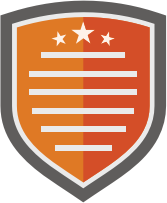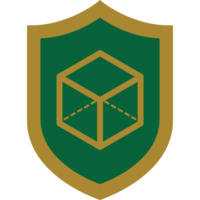I attended a workshop at the Library Innovation Edge Lab on March 14th which covered how to wire and program micro-controllers. Before visiting the lab, I had no idea what I micro-controller was or what its function was. It was really intriguing to learn about how they work and have the opportunity to learn a little about coding. At the lab, the teacher explained that any form of computer code is essentially a language that helps you communicate with your computer in order to have it perform certain functions. Micro-controllers are simple programmable boards that can retain small amounts of code, and prompt technology to perform functions such as detecting light, motion, turning things on or off, operating fans, operating movable parts, etc. The language we were using was a C programming language, which operates by performing two main phases: a startup, and a loop. The startup is what the language prompts the computer to do whenever the computer receives power, and boots up. The startup is only performed once as specified, and then proceeds to the loop phase. The loop is a process that will repeat until specified, or until power is no longer received by the computer.
During the workshop, I used my board to turn on four LED lights. With manipulating the code, I was able to perform lots of different functions. I made the lights flash at an interval of 1 second, made the blue lights and yellow lights turn on and off in an alternating fashion, and even added a button to the board that allowed me to turn the lights of and off. The programming language was a bit difficult for me to grasp at first, because it is a very different way of thinking. "If (x), then (y)." For example, "If (button is pushed), then (lights will turn on)." This was the most simple way that I could understand how it worked. I certainly have a much deeper appreciation for coding now, especially because one letter, capitalization, space, or misplaced bracket can make the code unable to work.
I don't know that knowledge of micro-controllers specifically will impact my future career as an art teacher, but perhaps the most important thing that I reflected on after the workshop was the significance of staying up to date with technology. I need to stay immersed in technology and learn how things work so that I can provide opportunities to my students. Many students connect with technology, and it can be a wonderful vehicle for learning. I think this workshop gave me some great insight on how quickly things are changing in the world of tech. The innovation hub is a fantastic resource, and there are plenty of people who are on staff who are happy to educate and answer questions about cutting edge development. And actually, I do see some artists who have been working with digital fabrication, and utilizing 3D printers. The staff at the lab asked me if I had an interest in 3D art, and informed me that I was welcome to come in to learn how to use 3D modeling software and print my creations. I will definitely be using it in the future!
During the workshop, I used my board to turn on four LED lights. With manipulating the code, I was able to perform lots of different functions. I made the lights flash at an interval of 1 second, made the blue lights and yellow lights turn on and off in an alternating fashion, and even added a button to the board that allowed me to turn the lights of and off. The programming language was a bit difficult for me to grasp at first, because it is a very different way of thinking. "If (x), then (y)." For example, "If (button is pushed), then (lights will turn on)." This was the most simple way that I could understand how it worked. I certainly have a much deeper appreciation for coding now, especially because one letter, capitalization, space, or misplaced bracket can make the code unable to work.
I don't know that knowledge of micro-controllers specifically will impact my future career as an art teacher, but perhaps the most important thing that I reflected on after the workshop was the significance of staying up to date with technology. I need to stay immersed in technology and learn how things work so that I can provide opportunities to my students. Many students connect with technology, and it can be a wonderful vehicle for learning. I think this workshop gave me some great insight on how quickly things are changing in the world of tech. The innovation hub is a fantastic resource, and there are plenty of people who are on staff who are happy to educate and answer questions about cutting edge development. And actually, I do see some artists who have been working with digital fabrication, and utilizing 3D printers. The staff at the lab asked me if I had an interest in 3D art, and informed me that I was welcome to come in to learn how to use 3D modeling software and print my creations. I will definitely be using it in the future!



